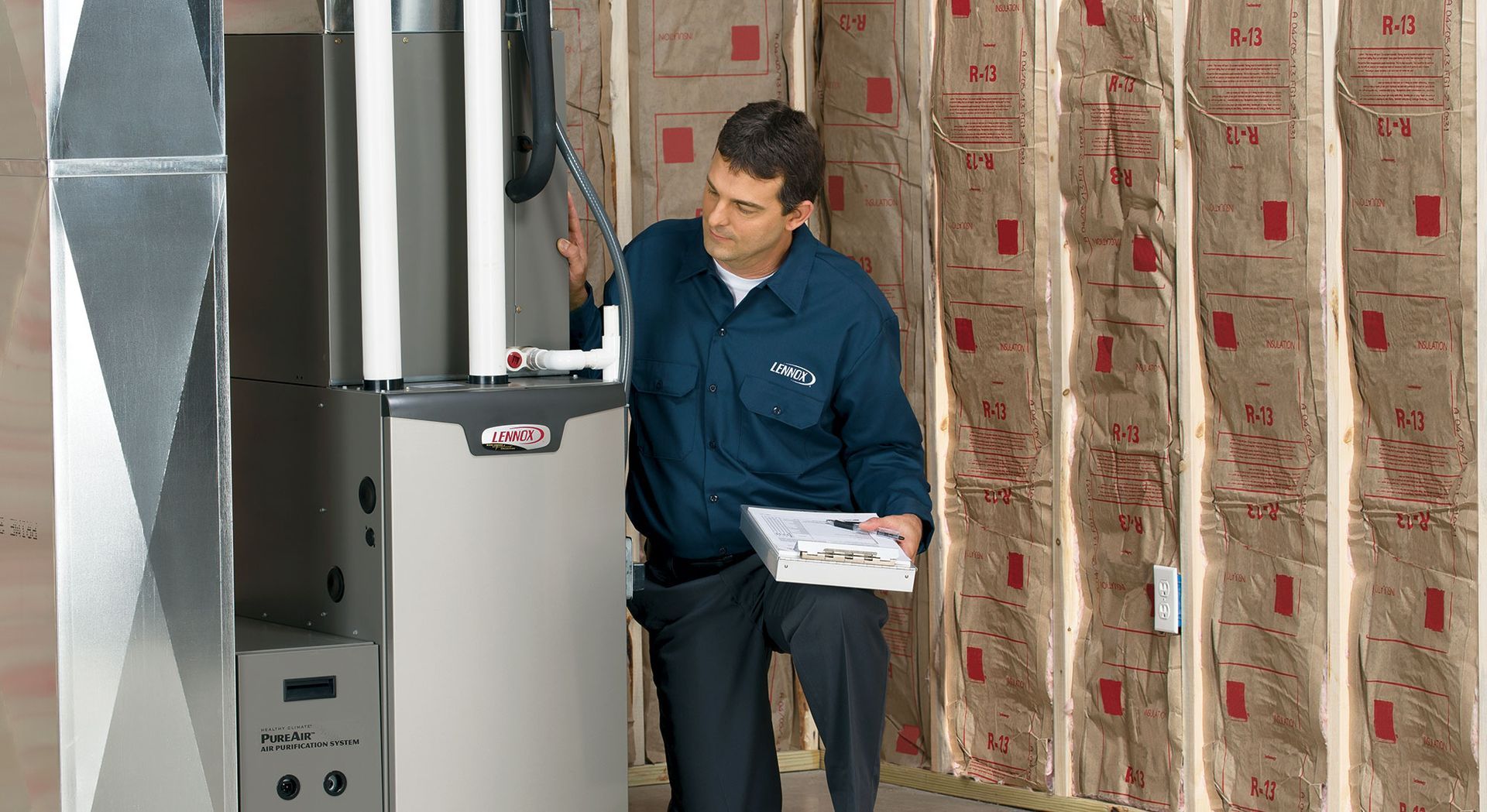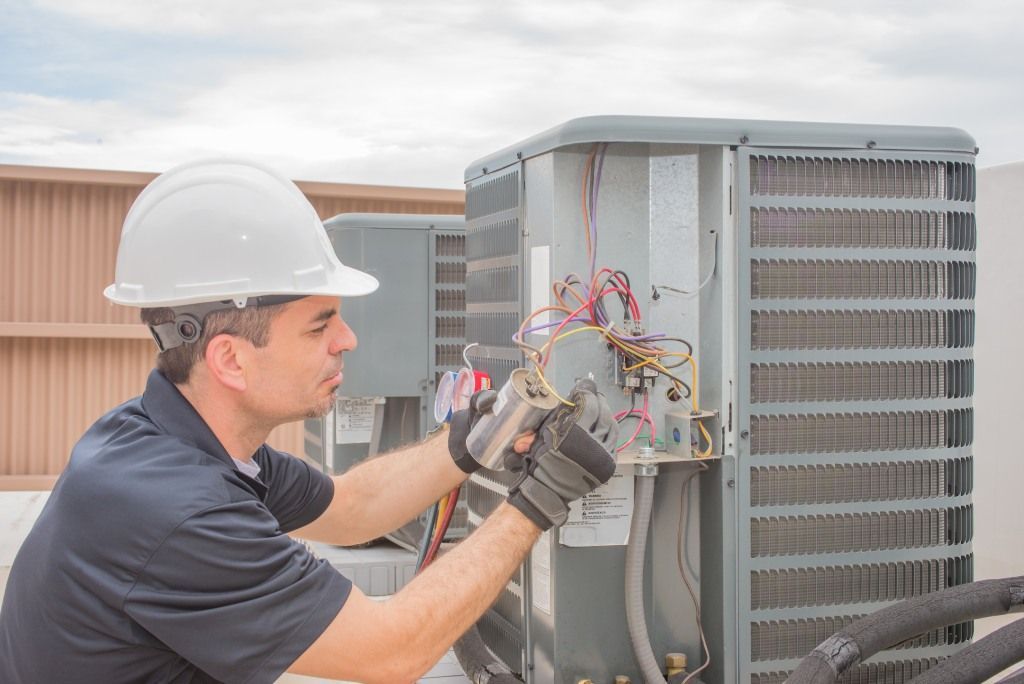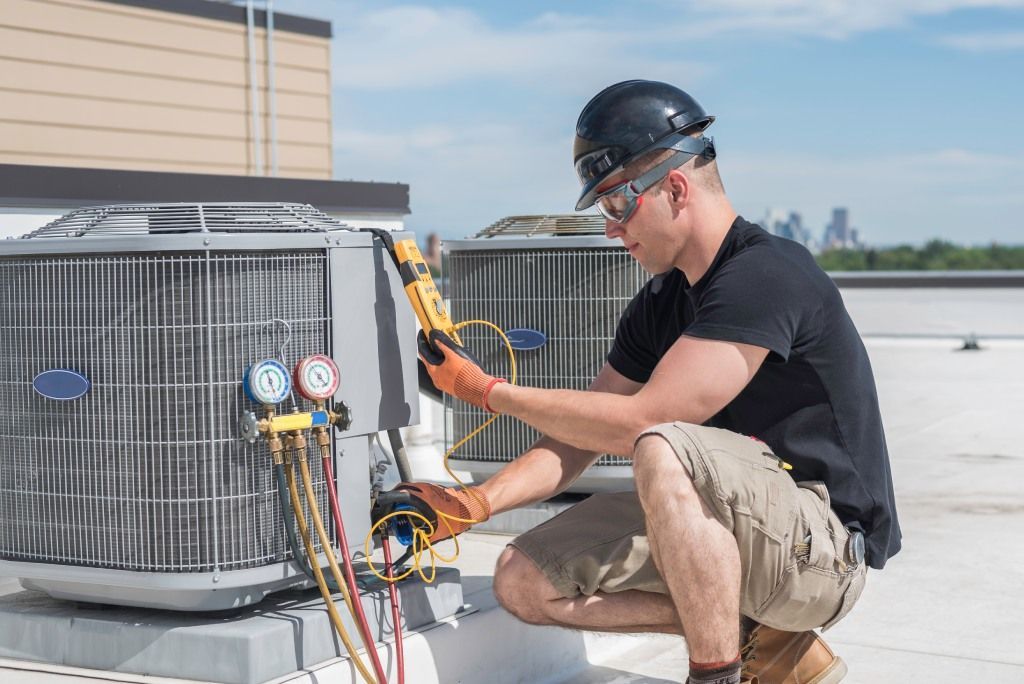Most people don’t realize the role that their HVAC system plays in seasonal allergies. The standard fiberglass filters found in most blower systems simply aren’t capable of removing things as small as airborne allergens. A HEPA filter on the other hand, can bring you exactly the kind of relief you desire. This article will discuss three key benefits of a HEPA Filtration System from Lennox.
Keeps Out Pollen – HEPA Filtration
The dense weave of a HEPA filter renders it capable of filtering out even the most microscopic of particles. Anything larger than 0.3 microns in size will get stopped by a HEPA filter. By way of comparison, the average size of airborne pollen is around 100 microns. In other words, investing in a HEPA filter will make it virtually impossible for allergy causing pollen to get into your home.
Stops Mold And Bacteria
Pollen and other plant-based irritants aren’t the only substances capable of causing respiratory problems. Many types of mold also proliferate as the weather grows warmer. So do fungi and other microorganisms that can lead to serious health complaints.
Fortunately, a HEPA Filtration System from Lennox is capable of eliminating all of these things from your home’s air. Even bacteria as tiny as 1 micron in width will be stopped by a HEPA filter. That means you and your family can keep allergies and illness at bay all year round.
Removes Odors and Chemicals
Lennox HEPA Filtration Systems come with an optional carbon canister for even cleaner air. These canisters act to absorb unpleasant odors from your air. More importantly, they remove the chemical substance known as ozone from entering your home. They also lower the levels of carcinogenic toxins such as formaldehyde.
HEPA filtration represents one of the most important things you can do to improve the air quality inside of your home. Investing in a HEPA system from Lennox will keep allergies at bay this spring. For more information, please contact the HVAC pros at Maxwell Heating & Cooling.
The post How A HEPA Filtration System From Lennox Can Ease Respiratory Problems appeared first on Maxwell Heating & Cooling.




